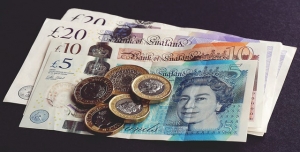I bet it wouldn’t be on sanitary products.
But it’s estimated women will spend more than £18,000 in their lifetime on products relating to their periods, from tampons and pads through to replacement underwear and pain relief.
A report last year revealed nearly 138,000 UK children missed school because of period poverty.
And a shocking one in ten schoolgirls can’t afford to buy menstrual products.
As part of our build-up to International Women’s Day, at SGN we asked our staff to submit photos and for every one received we’re going to donate £5 to Freedom4Girls, a charity fighting to end period poverty and donating sanitary products to schools across the UK.
But what is period poverty?
For some girls it means having to stick toilet roll to their underwear and missing school every month because of her period.
Others have wrapped socks around their pants to stop the bleeding.
Or as single mum Kerry from Aberdeen puts it: “If it’s a choice between electricity, snacks for the kids, or sanitary towels… Even that £2 at the end of the month matters.”
Quite simply, period poverty means being unable to access menstrual products because of financial challenges.
What is being done to tackle period poverty?
Freedom4Girls was founded in late 2016 by Tina Leslie who had been working with a charity in Kenya setting up workshops with women to make reusable sanitary pads. In March 2017 she was approached by a Leeds school asking for help with girls missing school as they had no access to affordable sanitary protection.
Shocked at the widespread problem of period poverty, Tina helped bring the issue into the spotlight of the media. From this exposure, a number of other campaigns have sprung into life.
Reading about this shocking issue, three friends got together to form the Red Box Project, a community project providing free menstrual products to schools for students who might otherwise go without. They initially contacted several secondary schools in Portsmouth to ask if a constantly stocked box of menstrual product would be welcomed. Two years on, there are over 200 local projects across the UK filling up boxes with donated tampons, pads, tights and underwear which are then delivered to local schools.
At the age of 17, Amika George formed the #FreePeriods campaign in her bedroom. She started an online movement that led to 2,000 young people protesting in London asking for the government to end period poverty and ensure menstrual products are freely available in schools and colleges.
In August 2018 the Scottish Government announced £5.2 million would be spent on making free sanitary products available to students at schools, colleges and universities across Scotland. More than £500,000 was also made available to food poverty charity FareShare to distribute sanitary products to around 19,000 people across Scotland. They are the first government in the world to make free sanitary products available to all students.
Unfortunately, children in schools in other parts of the UK do not receive the same treatment.
This is why we chose Freedom4Girls as our charity for this year’s International Women’s Day, with the money raised from our staff’s submissions being used to help girls in the UK suffering from period poverty.
We’ve asked our female colleagues to submit photos showing a different side of them away from work, and our male colleagues to show an unexpected perspective of the women they’re proud to live and work with.
I’m proud to be working on campaign that can raise awareness of this important issue and raise money that will make a real difference to children in the UK.



